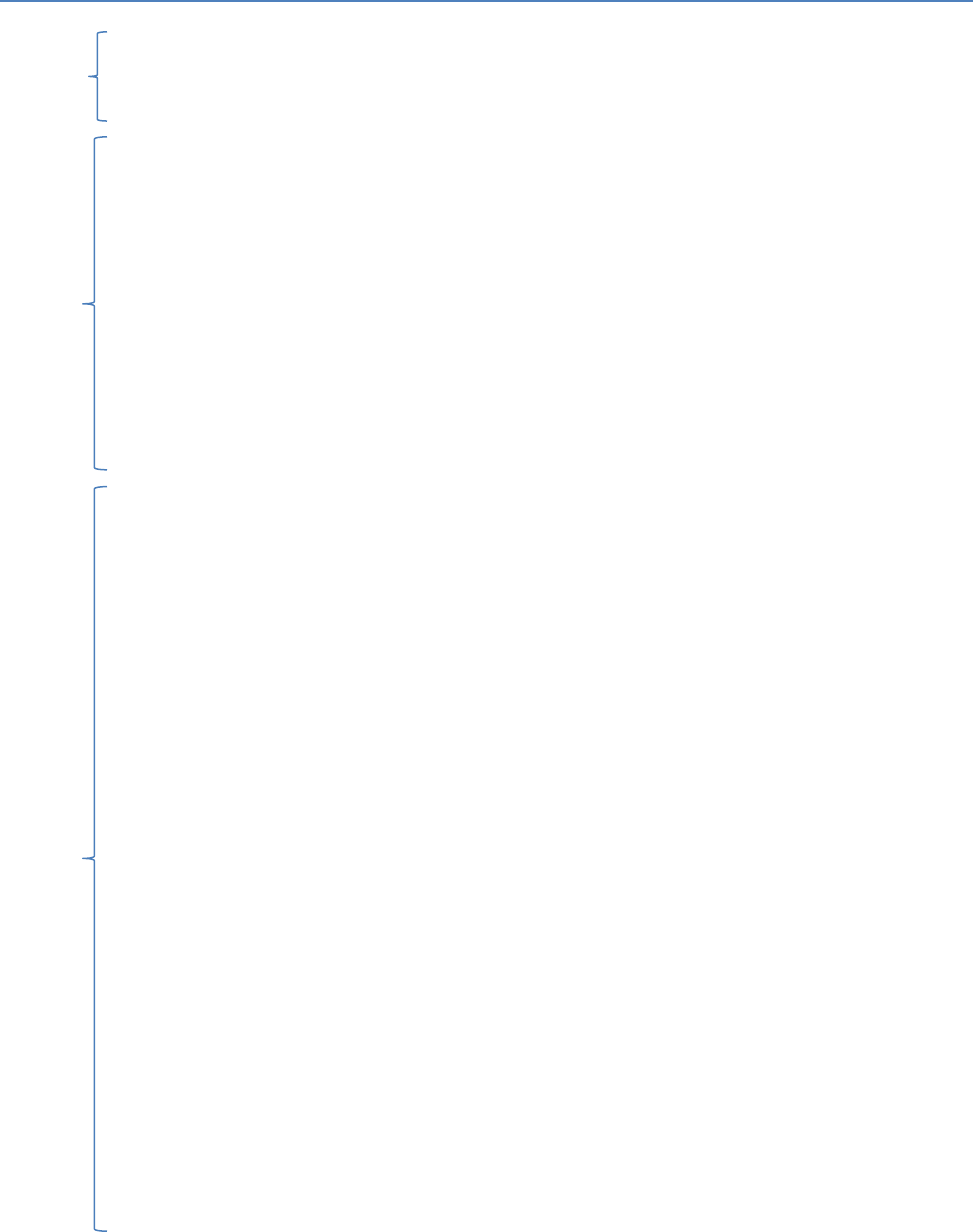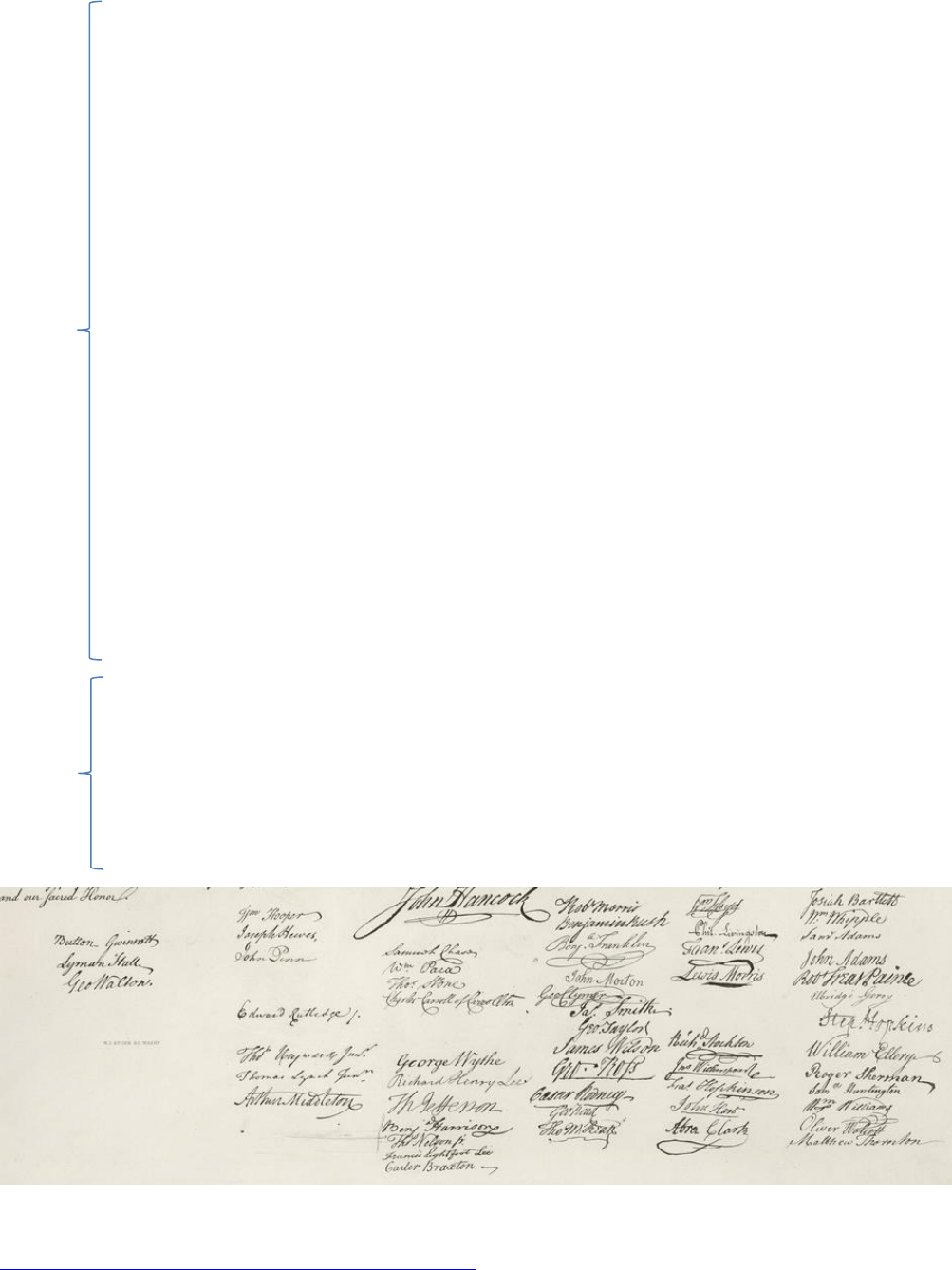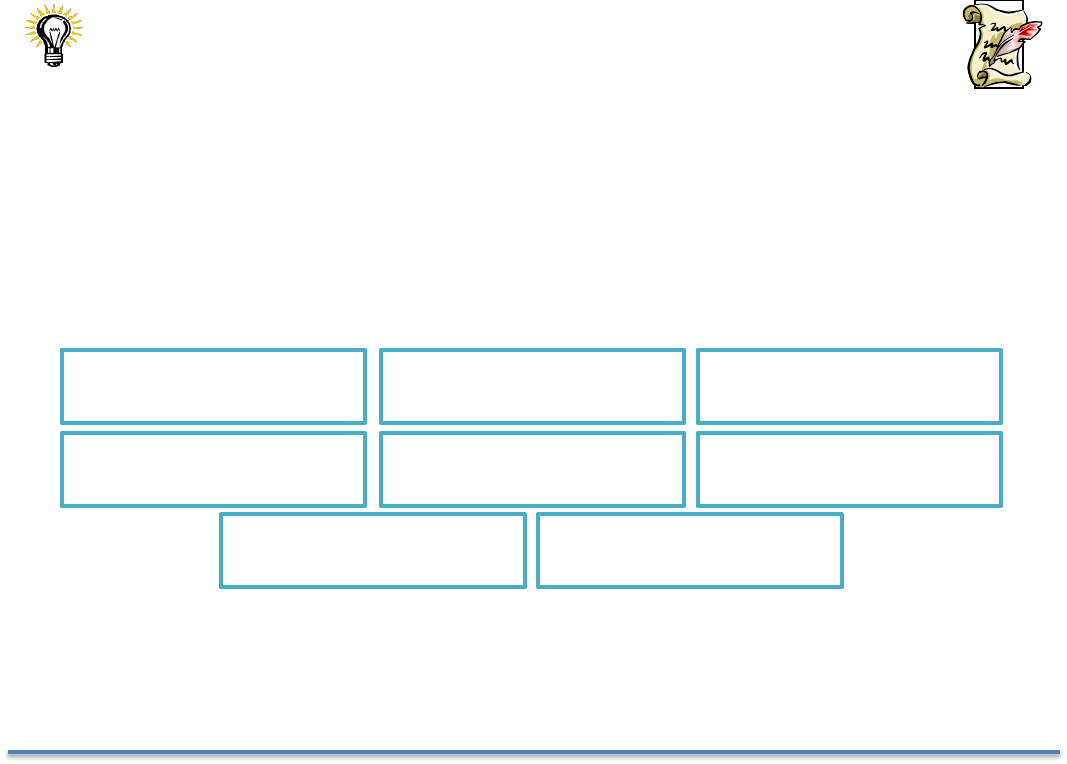
The Declaration of Independence—A Global Approach Handout C
1
The Declaration of Independence IN CONGRESS, July 4, 1776.
The unanimous Declaration of the thirteen united States of America,
When in the Course of human events, it becomes necessary for one people to dissolve the political bands
which have connected them with another, and to assume among the powers of the earth, the separate and
equal station to which the Laws of Nature and of Nature's God entitle them, a decent respect to the opinions of
mankind requires that they should declare the causes which impel them to the separation.
We hold these truths to be self-evident, that all men are created equal, that they are endowed by their Creator
with certain unalienable Rights, that among these are Life, Liberty and the pursuit of Happiness.--That to
secure these rights, Governments are instituted among Men, deriving their just powers from the consent of the
governed, --That whenever any Form of Government becomes destructive of these ends, it is the Right of the
People to alter or to abolish it, and to institute new Government, laying its foundation on such principles and
organizing its powers in such form, as to them shall seem most likely to effect their Safety and Happiness.
Prudence, indeed, will dictate that Governments long established should not be changed for light and transient
causes; and accordingly all experience hath shewn, that mankind are more disposed to suffer, while evils are
sufferable, than to right themselves by abolishing the forms to which they are accustomed. But when a long
train of abuses and usurpations, pursuing invariably the same Object evinces a design to reduce them under
absolute Despotism, it is their right, it is their duty, to throw off such Government, and to provide new Guards
for their future security.--Such has been the patient sufferance of these Colonies; and such is now the
necessity which constrains them to alter their former Systems of Government. The history of the present King
of Great Britain is a history of repeated injuries and usurpations, all having in direct object the establishment
of an absolute Tyranny over these States. To prove this, let Facts be submitted to a candid world.
He has refused his Assent to Laws, the most wholesome and necessary for the public good.
He has forbidden his Governors to pass Laws of immediate and pressing importance, unless suspended in
their operation till his Assent should be obtained; and when so suspended, he has utterly neglected to
attend to them.
He has refused to pass other Laws for the accommodation of large districts of people, unless those people
would relinquish the right of Representation in the Legislature, a right inestimable to them and formidable
to tyrants only.
He has called together legislative bodies at places unusual, uncomfortable, and distant from the depository
of their public Records, for the sole purpose of fatiguing them into compliance with his measures.
He has dissolved Representative Houses repeatedly, for opposing with manly firmness his invasions on the
rights of the people.
He has refused for a long time, after such dissolutions, to cause others to be elected; whereby the
Legislative powers, incapable of Annihilation, have returned to the People at large for their exercise; the
State remaining in the meantime exposed to all the dangers of invasion from without, and convulsions
within.
He has endeavored to prevent the population of these States; for that purpose obstructing the Laws for
Naturalization of Foreigners; refusing to pass others to encourage their migrations hither, and raising the
conditions of new Appropriations of Lands.
He has obstructed the Administration of Justice, by refusing his Assent to Laws for establishing Judiciary
powers.
He has made Judges dependent on his Will alone, for the tenure of their offices, and the amount and
payment of their salaries.
He has erected a multitude of New Offices, and sent hither swarms of Officers to harass our people, and
eat out their substance.
He has kept among us, in times of peace, Standing Armies without the Consent of our legislatures.
He has affected to render the Military independent of and superior to the Civil power.
He has combined with others to subject us to a jurisdiction foreign to our constitution, and
unacknowledged by our laws; giving his Assent to their Acts of pretended Legislation:
For Quartering large bodies of armed troops among us:
For protecting them, by a mock Trial, from punishment for any Murders which they should commit on the
Inhabitants of these States:
For cutting off our Trade with all parts of the world:
For imposing Taxes on us without our Consent:
(continues on next page)

The Declaration of Independence—A Global Approach Handout C
2
For depriving us in many cases, of the benefits of Trial by Jury:
For transporting us beyond Seas to be tried for pretended offences
For abolishing the free System of English Laws in a neighboring Province, establishing therein an
Arbitrary government, and enlarging its Boundaries so as to render it at once an example and fit
instrument for introducing the same absolute rule into these Colonies:
For taking away our Charters, abolishing our most valuable Laws, and altering fundamentally the Forms
of our Governments:
For suspending our own Legislatures, and declaring themselves invested with power to legislate for us in
all cases whatsoever.
He has abdicated Government here, by declaring us out of his Protection and waging War against us.
He has plundered our seas, ravaged our Coasts, burnt our towns, and destroyed the lives of our people.
He is at this time transporting large Armies of foreign Mercenaries to complete the works of death,
desolation and tyranny, already begun with circumstances of Cruelty & perfidy scarcely paralleled in the
most barbarous ages, and totally unworthy the Head of a civilized nation.
He has constrained our fellow Citizens taken Captive on the high Seas to bear Arms against their Country,
to become the executioners of their friends and Brethren, or to fall themselves by their Hands.
He has excited domestic insurrections amongst us, and has endeavored to bring on the inhabitants of our
frontiers, the merciless Indian Savages, whose known rule of warfare, is an undistinguished destruction of
all ages, sexes and conditions.
In every stage of these Oppressions We have Petitioned for Redress in the most humble terms: Our repeated
Petitions have been answered only by repeated injury. A Prince whose character is thus marked by every act
which may define a Tyrant, is unfit to be the ruler of a free people.
Nor have We been wanting in attentions to our British brethren. We have warned them from time to time of
attempts by their legislature to extend an unwarrantable jurisdiction over us. We have reminded them of the
circumstances of our emigration and settlement here. We have appealed to their native justice and
magnanimity, and we have conjured them by the ties of our common kindred to disavow these usurpations,
which, would inevitably interrupt our connections and correspondence. They too have been deaf to the voice
of justice and of consanguinity. We must, therefore, acquiesce in the necessity, which denounces our
Separation, and hold them, as we hold the rest of mankind, Enemies in War, in Peace Friends.
We, therefore, the Representatives of the united States of America, in General Congress, Assembled,
appealing to the Supreme Judge of the world for the rectitude of our intentions, do, in the Name, and by
Authority of the good People of these Colonies, solemnly publish and declare, That these United Colonies are,
and of Right ought to be Free and Independent States; that they are Absolved from all Allegiance to the
British Crown, and that all political connection between them and the State of Great Britain, is and ought to be
totally dissolved; and that as Free and Independent States, they have full Power to levy War, conclude Peace,
contract Alliances, establish Commerce, and to do all other Acts and Things which Independent States may of
right do. And for the support of this Declaration, with a firm reliance on the protection of divine Providence,
we mutually pledge to each other our Lives, our Fortunes and our sacred Honor.
Source: The National Archives Records Administration at
http://www.archives.gov/exhibits/charters/declaration_transcript.html
Continues from previous page

The Declaration of Independence—A Global Approach Handout C
3
IS THE DECLARATION OF INDEPENDENCE A GLOBAL DOCUMENT?
Part I: Studying the Document Name:____________________________________________________________
A. Review:
1. The Declaration of Independence ended the colonies’ allegiance to what country? ________ ___________
2. Who was the main author of the Declaration of Independence? _____________ ________________
3. What legislative body/congress approved the Declaration? The ___________ ___________ ____________
4. Summarize the ideas that contributed to the Declaration from the philosophers you studied. (Choose one
or two of the MOST influential from EACH philosopher—some may be similar.)
5. From what five countries were the philosophers above?
__________________ ________________ __________________ ________________ _______________
B. Document Study
Look closely at the copy of the “Declaration of Independence” to answer the following questions.
I. THE PREAMBLE [Paragraph 1)
*NOTE: This is NOT the “We the People” intro of the Constitution! A Preamble is any introduction to a formal document.
6. A preamble is another word for a(n) _____________________ to an important document.
7. According to the Preamble, what is it time for the united States to “dissolve”(break up/end)?
8. Who are the “powers of the Earth” the Preamble is referring to and what are the united States seeking
among them?
____________________________ ________________________________________________
9. To what is the document appealing in “mankind”?
_____________________________________________________________________________________

The Declaration of Independence—A Global Approach Handout C
4
II. THE DECLARATION OF NATURAL RIGHTS
10. Unalienable means to not able to be transferred or taken away; because of being protected by law.
What are the three unalienable rights?
11. In paragraph 2, the authors wrote that (a) “
governments are instituted among _________, deriving
(or
getting)
their power from the consent of the governed
.” (44, ¶ 2, line 4)
(b) Who are “the governed?” (c) What is meant by “’consent’ of the governed?”
___________________________ ______________________________________________
12. When government becomes destructive, what do the people have the right to do? “
It is the right of the
People to…
” (page 44, ¶2, line 5-6)
(a) ______________ or to (b)_____________, and to institute (c)_________________________
13. The Declaration states that it’s not smart to change long-established government (ones in place for many years)
for just any reason. When is it (according to the D of I) okay to do this? (page 44, ¶2, line 14)
“
But when a
long train of ___________________ and usurpations,
1
pursuing invariably the same
Object evinces a design to reduce them under absolute Despotism
2
, it is their _____________, it is
their _____________, to throw off such government, and provide new guards for their future
_______________.”
III. THE LIST OF GRIEVANCES (pages 44 ¶ 3-9, all of 45 continuing onto page 46, ¶ 1-7)
14. Name two ways (according to the Declaration) the King has hurt the colonies economically$$?
_____________________________________ ______________________________________
15. Name two ways (according to the Declaration) the King has hurt the colonies militarily?
_____________________________________ ______________________________________
16. Name two ways (according to the Declaration) the King has hurt the colonies by taking away rights,
and/or governments (courts, assemblies, etc.)?
_____________________________________ ______________________________________
17. What do the writers of the Declaration say has been the King’s response to us? [p. 46 ¶6]
(a)
“Our Repeated
________________
have been answered only be repeated
_________________
.”
(b) What does this statement mean? ________________________________________________
18. Even though the colonists continually warned and appealed to the British, the Declaration says that the
British continue to be
“deaf to the
________________ ____ ________________
and consanguinity
3
.”
1
Overstepping the bounds of rightful authority
2
The state of being governed by threat of violence and punishment
3
[cŏn săn gwĕn ĭ tee) The bond/similarities/friendship among people of a common ancestry—in this case, all British subjects
[p. 46 ¶]7 Line 8)

The Declaration of Independence—A Global Approach Handout C
5
IV. FINAL RESOLUTION OF INDEPENDENCE (p. 46, last ¶)
19. What do the colonists say they have the right to do now that they are “
Free and Independent
States….totally dissolved
” from the King?
“…they have full power to…levy ___________, __________________________,
______________________________, ______________________________ and to do all other
____________ and _____________ that _______________________________ may of right do.”
20. What do the signers of the Declaration “mutually pledge” to each other?
“Our ____________________, our ____________________, and our __________________
_________________.”
21. This main author later became our 3
rd
president. What other signer would later become president?
(look at list of signers on page 47, and, if needed, the list of presidents in the back of book)
22. (a) Why was John Hancock the first to sign the Declaration?
(b) Why is his signature so famous? Explain:
23. How many “states” had representatives sign the document? _____
C. Putting it all Together
Look back over your work. In what ways was the Declaration affected by other nations or did the
Declaration affect other nations? Name four to six ways: Hint: Be sure to carefully consider #19!
